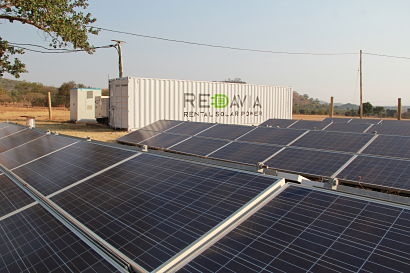
The falling cost of solar, wind and energy storage is creating new opportunities for electrification in rural areas. Globally, around 1.2 billion people do not have access to electricity. Two main solutions can be identified – solar home systems and mini-grids/microgrids. Solar home systems are self-sufficient solutions for individual households. A small solar system is typically coupled with a battery to provide power for DC appliances day and night. Mini-grids may provide DC power or more sophisticated AC power through a semi-centralized system at the village level. Intermittent renewable energy from solar, wind or hydro solutions might be balanced by integrating energy storage, biomass or diesel generators. Pay-as-you-go (PAYG) solutions allow for innovative business models with mobile payment options. In the last few years, the appetite for investing in these segments has been growing from impact and commercial investors.
At the same time, utilities like E.ON and ENGIE have built up mini-grid capabilities from scratch. Tech giants such as Facebook and Microsoft are also supporting mini-grid development, for example by setting up the Microgrid Investment Accelerator – a $50 million support vehicle. Foundations like Shell Foundation and Rockefeller Foundation are joining in by fostering min-grid improvement.
These activities have triggered interest from many new investors. Sometimes, a gap between the status quo and expectations is apparent. Typically, investors realise this within rather costly due diligence processes. Rural electrification companies must also take significant efforts to collect and present relevant information that is tailor-made for the needs of investors. In addition, they are required to disclose a significant amount of information during the process.
This is where THEnergy’s consultation activity may play a useful role by streamlining approaches to due diligence, thereby cutting costs.
“The objective is to make the process for future due diligences more efficient and to reduce transaction costs” said Dr. Thomas Hillig, Managing Director of THEnergy. The new methodology is based on the experience that, typically, a few factors are critical during the acquisition process.
“Before the main process starts, we also provide detailed market information to investors which helps to manage their expectations and to select investment targets that correspond to their needs” said Hillig. “The new approach will make funding for mini-grid players more cost-effective and will contribute to quicker growth. It can also be applied similarly to evaluate and optimise existing investments in mini-grid players”.
THEnergy is a consultancy founded in 2013 focusing on microgrids/mini-grids and offgrid renewable energy. It develops energy concepts for industrial companies and shows how to become more sustainable – combining experience from conventional and renewable energy with industry knowledge in consulting. The consultancy also advises investors and energy companies regarding renewable energy opportunities in rapidly changing markets. THEnergy has lead several large-scale due diligence processes in rural electrification.
Image: Redavia mini-grid with 87.3kWp solar and 60kW/137kWh lithium-ion battery at Shitunguru village, Tanzania (picture courtesy of Redavia GmbH)
For additional information:

